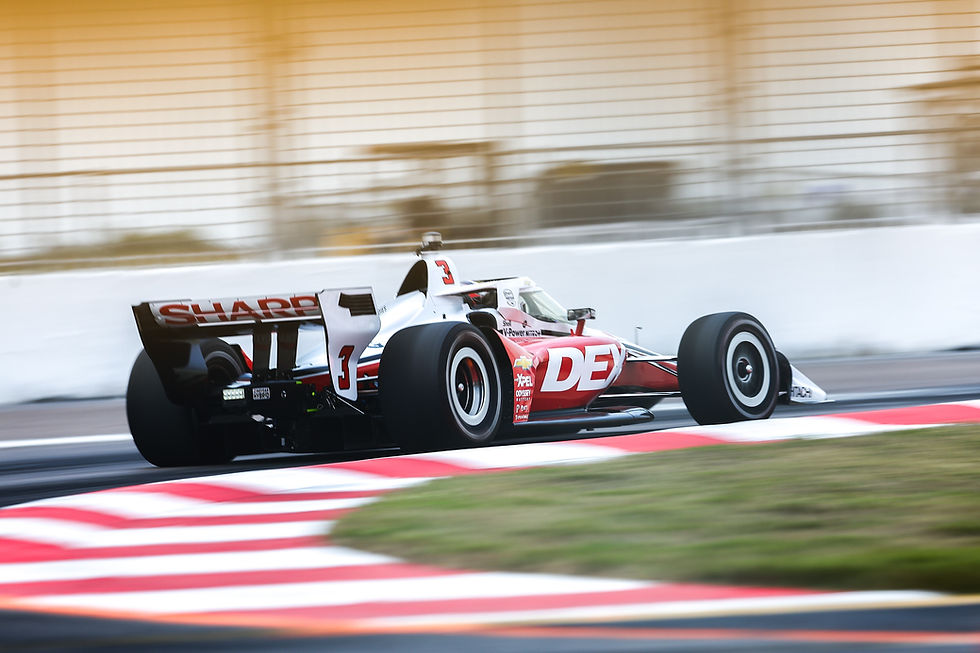OPINION: Why does representation matter in Formula 1?
- Alejandra Guajardo Lozano

- May 5, 2025
- 5 min read
Written by Alejandra Guajardo Lozano, Edited by Jann Erin Castro
Why does representation matter in Formula One? Why would it matter in a sport where you just watch cars go around a track? It’s not that deep, is it? In my opinion, it is that deep. Keep reading to know why.

Representation is a big part of the sport, affecting it economically and socially. It helps inspire future generations of drivers, mechanics, journalists and spectators who develop a deeper connection with F1 simply by feeling represented globally.
Sergio Perez is the perfect example of how much representation impacts the sport.
At the end of the 2024 season, Red Bull decided to part ways with the Mexican driver. The repercussions of this decision were immediately visible online when Red Bull lost approximately 400,000 followers on Instagram within 24 hours.
The Milton Keynes-based team was also affected financially. Apart from the approximate £1.2 million cost of breaking Perez’s contract, they also lost major sponsors that backed him, such as Infinitum, Telcel, Claro, Tequila Patron and Banorte.
Tons of outraged fans and financial loss is the perfect mix for destroying a team even as strong as Red Bull.
The Mexican driver had to leave his hometown at just 15 years old to fight for his dream, even if it seemed impossible. Now, thanks to him, future generations see it as something achievable.
It is clear that Perez was a figure of inspiration to many Latin Americans who saw the sport as unreachable due to their background.

When speaking about representation affecting the sport socially, Lewis Hamilton always springs to mind.
Apart from being the first black driver, Hamilton always stood up for what he believed in and never stayed silent despite the Fédération Internationale de l'Automobile (FIA) wanting to keep politics out of the sport — a practice he continues until today.
Among his many firm advocacies, one that Hamilton passionately spoke up about was the Black Lives Matter movement in 2020. To further prove his stance, he wore a shirt that read “Arrest the cops that killed Breonna Taylor” after his victory at the Tuscan Grand Prix.
In that same year, he often kneeled during the national anthem while wearing a “Black Lives Matter” shirt. The knee protest was popularised by San Francisco 49ers quarterback Colin Kaepernick in 2016 as a way to call out racial inequalities and police brutality.
All of the drivers on the grid, members of the Grand Prix Drivers Association (GPDA), also shared their support for the movement by wearing black shirts that said “End Racism” during the national anthem of all races throughout the 2020 season. Some also joined Hamilton in taking a knee.
Hamilton has broken stereotypes in the sport and has helped future generations feel represented, fuelling the dreams of many to reach and become a part of F1.

LGBTQ+ representation on the grid hasn’t always been shown or talked about either. A few drivers had come out about their sexuality, such as Ralf Schumacher, Lella Lombardi and Mike Beuttler.
Even though the LGBTQ+ community was such a taboo topic in the sport, Sebastian Vettel was a proud ally and always one to speak up about it. Being such a high-profile racing driver, he gave the community a public platform.
During the 2021 Hungarian Grand Prix, he wore a rainbow-coloured shirt with “Same Love” written on it. He did this despite Hungary’s law banning the portrayal of LGBT+ people in media, school materials and advertisements.
"I wasn't nervous or embarrassed by the rainbow colours, or of what people think," Vettel said in a special episode of the BBC's ‘LGBT Sport Podcast.’ "I wanted to send a message, and I was very proud to do it."
Vettel continued to wear his “Same Love” shirt throughout his career, with LGBTQ+ rights becoming one of his advocacies.
He also advocated for women in motorsport. He made the “Race 4 Women” initiative in Saudi Arabia, where women weren’t allowed to drive cars until 2017. He even hosted a kart race to promote female participation in motorsports.
The four-time World Champion always stood up for what he believed. He is the perfect example of a driver striving to make the sport more inclusive and human, giving people from different communities the representation they need to feel like they belong.

There is no doubt that F1 is an expensive sport, making it a seemingly unreachable dream for many.
Starting your career in karting can already cost thousands of dollars. The kart itself, racewear, track fees and memberships, maintenance, repairs and other expenses amount to approximately £16,000 to £24,000 for a year of karting, making it inaccessible for a lot of aspiring young motorsport athletes.
Many are not able to reach their dreams of making it to F1 — some don’t even try — due to economic limitations, but others are able to find a way to make ends meet. Esteban Ocon is a perfect example of this.
Ocon, born into an average family like most of us, had to sacrifice a lot to achieve his dream. His family had to sell their home and his father’s garage to support his karting career. The Frenchman had to travel to races in a caravan, which they also used as a motor home.
At the age of 19, Ocon debuted as a F1 driver and became a race winner five years later at the age of 24. He begins a new chapter of his F1 career this coming 2025 season.
Ocon’s determination shows how it is possible to get to the pinnacle of motorsports regardless of what financial status you were born into and grew up in.

Of course, I couldn’t complete this article without including F1 Academy. Launched in 2023, the women-only racing series creates a pathway for women who dream of being part of the F1 male-dominated field.
The launch of this series also impacts the growing female fanbase, who, when seeing the series’ progress and success, look to achieve their dreams of joining the sport.
The F1 Academy Discover Your Drive is an initiative brought in with the series. This initiative seeks to bring young female talent on and off the track, offering them a once-in-a-lifetime chance to participate in entry-level and professional programmes.
The Wild Card initiative is another amazing opportunity to discover talented women behind the wheel all around the world. In every race weekend, they pick a talent from each host region to take part in the widely televised series for their home race weekend. This also becomes a pathway for them to gain a full seat in F1 Academy.
F1 Academy gives women something never seen before — funding, support and visibility.
It gives the much-needed representation that women barely have in motorsports and fuels the hope of seeing a woman, or even women, joining the top ranks and racing in F1.
F1 Academy Managing Director Susie Wolff said: "Sometimes in life, you just need to see it to believe it,” referring to the representation women need to believe their dream is achievable.

F1 is a sport that might seem out of touch or unreachable for many, but seeing drivers from different nationalities, sexualities, genders, races and backgrounds makes it feel more achievable — more human, even.
Representation does matter as it impacts the whole sport and makes it much more profound than just cars doing laps across circuits worldwide. It gives those striving towards it, participating in it or even watching it, a sense of belonging, a space where they don’t feel like outsiders.
Even if it seems “not that deep” to some, it is important to many others. Representation in F1 has always mattered and always will.











Comments